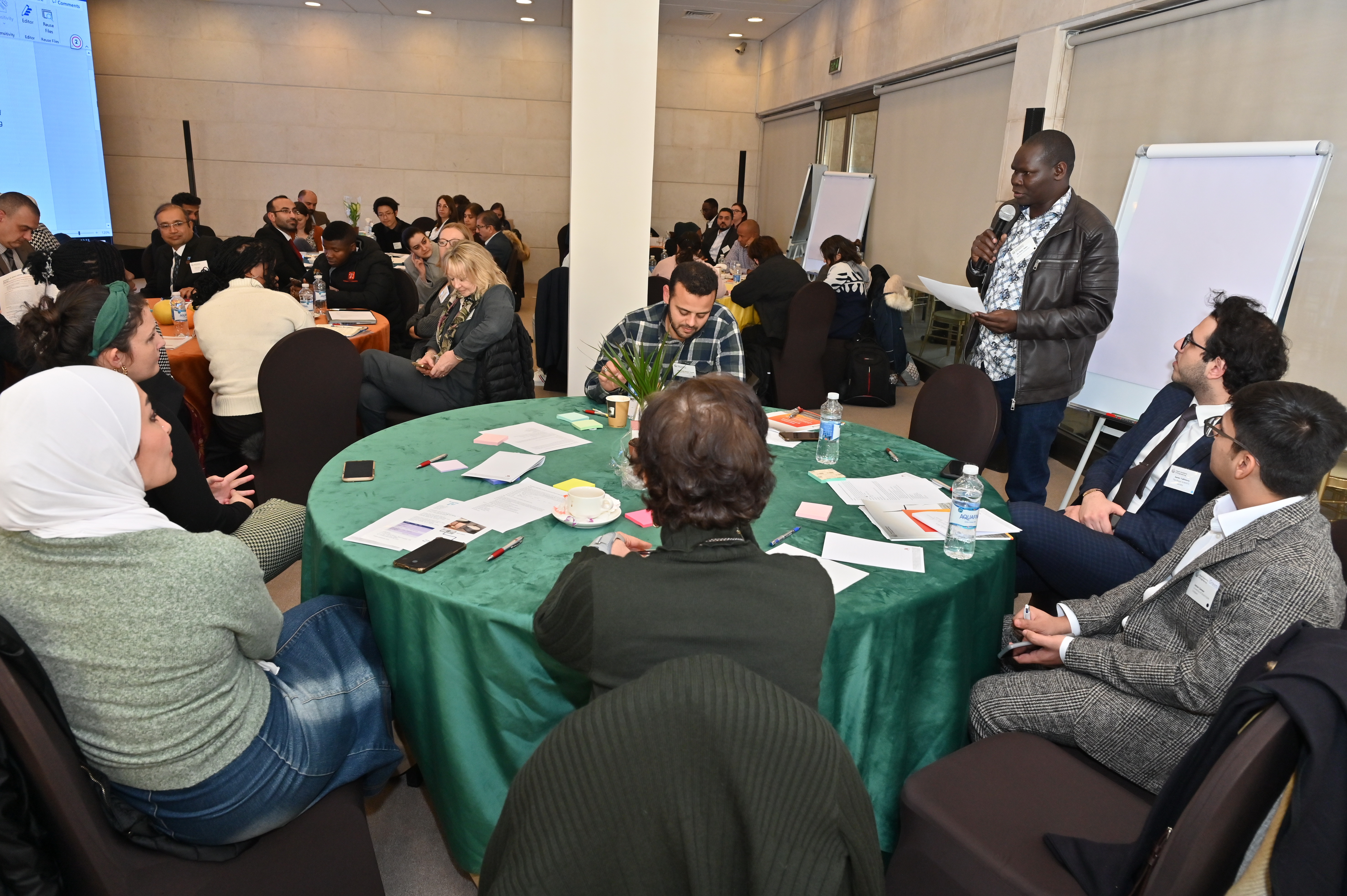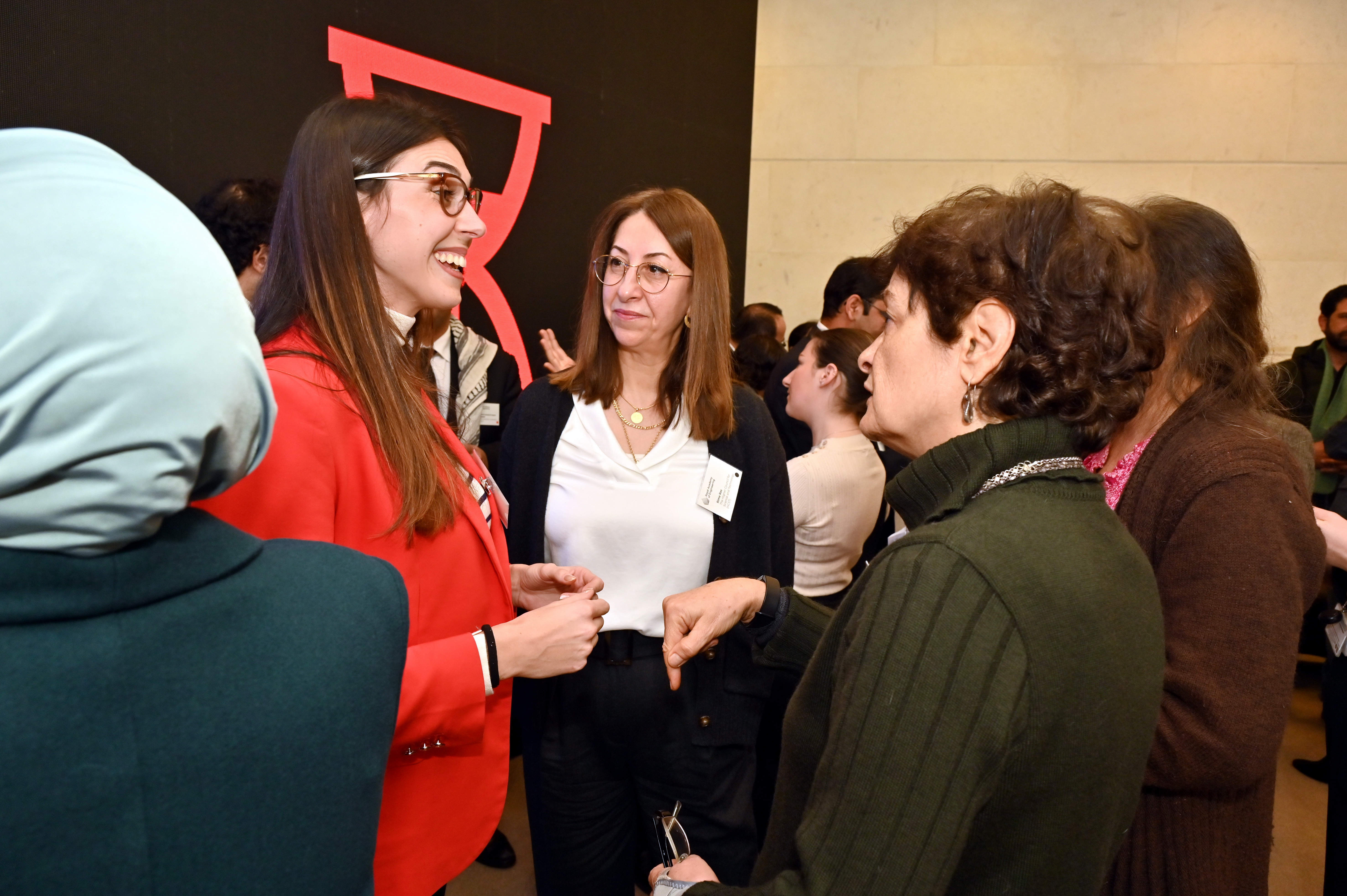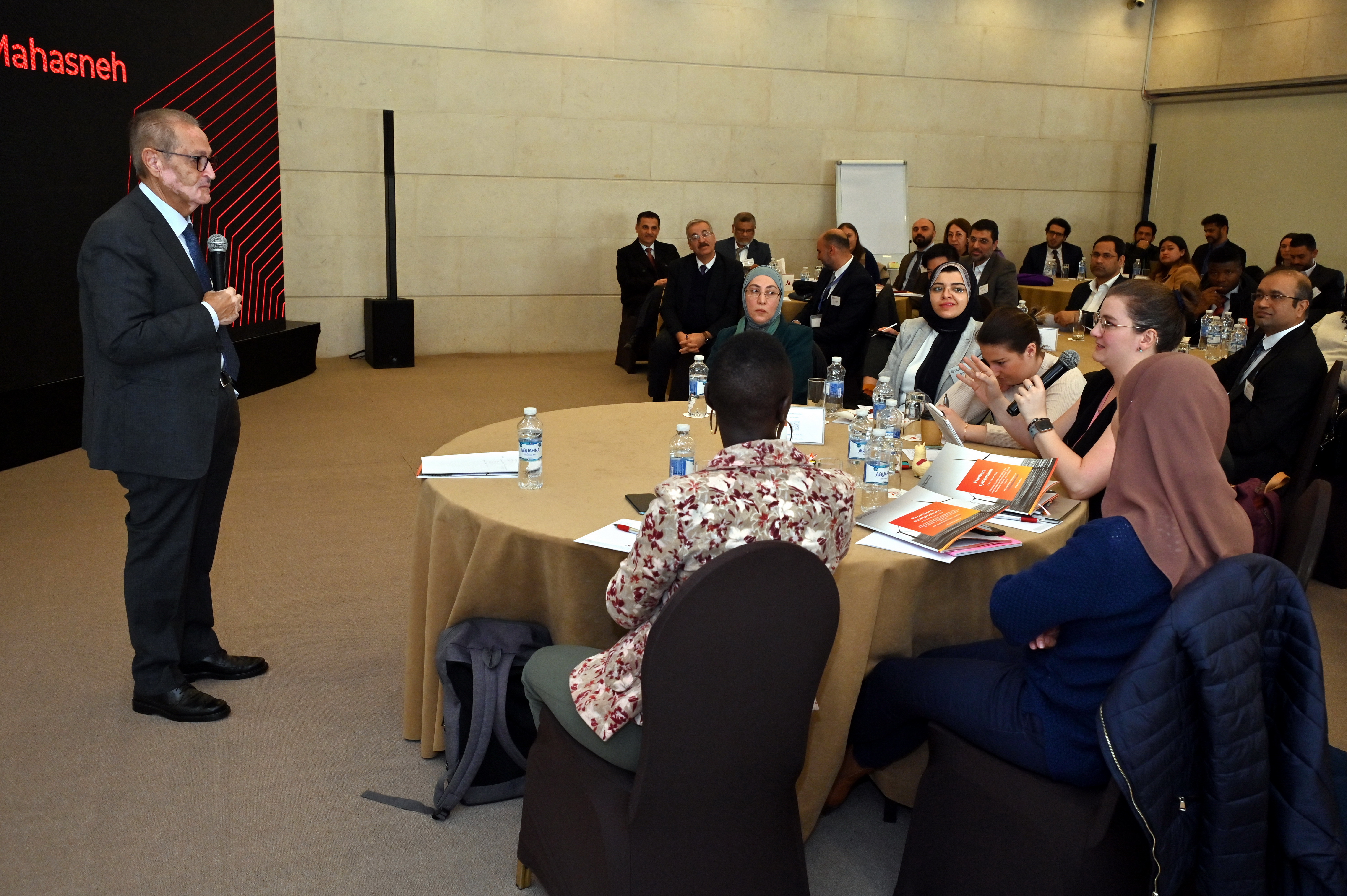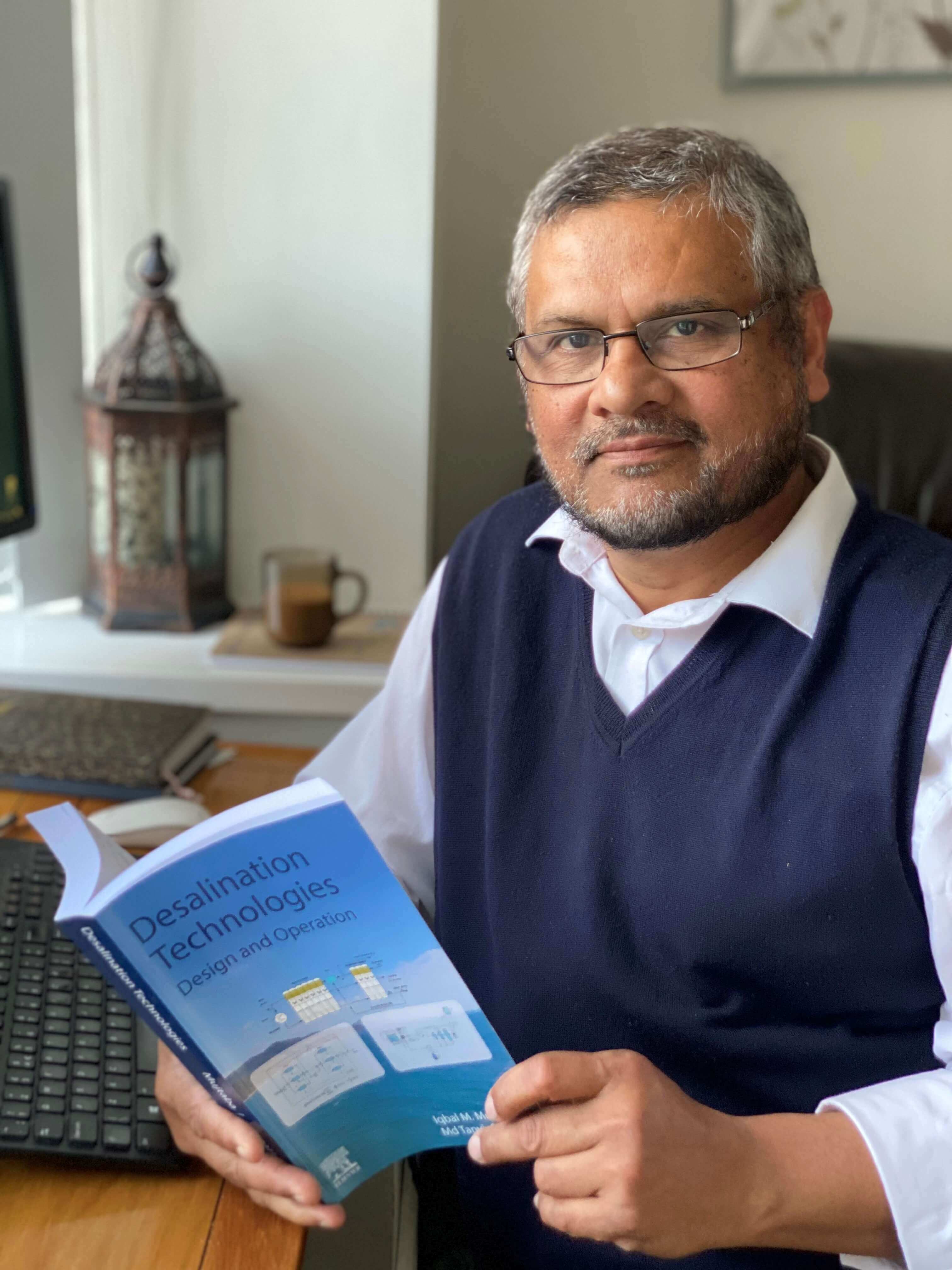An integrated approach to resource management will be a vital part of building equitable and climate resilient communities, writes Professor Iqbal Mujtaba FREng
In the face of climate change, government, scientists, and engineers are looking towards innovative solutions to protect natural resources while supporting society. Historically, valuable resources like energy, water, and food have been managed independently of each other. However, an integrated approach to resource management has emerged from the growing need for more cross-sectoral management of these critical resources and systems. This system is termed the Water-Energy-Food-Environment Nexus (WEFE Nexus) – and is an integrated approach to the management of these valuable resources. It suggests that impacts in one area can have a ripple effect on others – emphasising the need to examine a much bigger, and more connected, picture. For example, while biofuels might appear to be an environmentally friendly alternative to fossil fuels, their production is water-intensive, requiring between 1,000 to 4,000 liters of water per liter of biofuel. In a situation where there is existing strain on water resources, it is worth questioning whether a full transition to biofuel is a practical choice for that particular region.
How do we navigate the nexus?
Like any societal challenge, developing solutions can often benefit from an interdisciplinary approach, as this can ensure equitability, resilience, and inclusivity.
As part of the Royal Academy of Engineering’s Frontiers programme, I was fortunate to co-chair a symposium in Jordan in February 2024 that explored the WEFE nexus. The symposium brought together engineers and non-engineers from a wide range of backgrounds and sectors to address the fundamental challenges of navigating the nexus for a climate resilient and inclusive future. It did this by discussing three main themes: human security and inclusive society, innovative uses of the nexus, and R&D and technology to leverage the WEFE nexus for smart and resilient cities.
From the discussions, there were key takeaways that stood out to me as incredibly valuable insights for navigating the nexus in the future.

The symposium in Jordan, in February 2024, that explored the WEFE nexus.
1. Data as a driver of change
We need quality data to develop equitable solutions when navigating the WEFE nexus – it is necessary to connect all aspects of the nexus together to draw conclusions and develop solutions. Many speakers addressed how we collect, analyse, and share data. Robust data collection can help us understand the environment where a project will take place, as well as community perspectives, and potential impacts. To ensure equity is at the core of developed solutions, we must also consider where data is housed and who maintains ownership of it. This is to ensure the right people have the agency to make decisions relevant to their land and their livelihoods, funnelling opportunity back to local communities. An example of this introduced by speaker Tom de Block, is through the use of open-source data sharing platforms. By removing the centralisation of data records, these platforms increase accountability and ensure equitable data ownership and access. However, it is important to note, that the data should be collected with an awareness of inherent biases, aiming to achieve the highest possible accuracy.

Cohesive society cannot be developed without access to education for all.
2. The WEFE Nexus needs an additional E – Education
From the insights shared during the symposium, it’s become clear to me that education plays a significant role in implementing the nexus effectively within societies. Education on why the nexus is essential is valuable at a university and government level to ensure effective skill development and planning, as well as in communities to empower them and build agency in their own development.
What stood out in the symposium is that in many countries, refugees (for example, Rohynga refugees in Bangladesh) do not have access to mainstream education. This creates a silo and can lead to wider social problems (drugs, child labour, sextortion, social disorder, etc.), which is already taking place in Bangladesh. Basic education (literacy and numeracy) is a fundamental right, and one should not be deprived of it. Cohesive society cannot be developed without access to education for all.
Building a short-, medium- and long-term vision
As part of the final stages of the symposium, participants worked together to establish short-, medium- and long-term goals for progress on WEFE nexus issues. These goals helped establish the areas where participants saw effort needed to make positive change within the field.
In the short-term, the group focused on the next one to five years, highlighting the need to address the most pressing issues such as conflict, climate action and disaster response to set the stage for longer-term progress. Moving to the medium term, within 10 years, the group focussed on further establishing the short-term goals as well as building pathways for collaboration and learning, allowing for community and cross-disciplinary involvement. For the long-term vision (over 10 years), efforts centred around ensuring sustainable economic growth, enhancing peace, governance, and collaboration, and protecting the environment through measures like phasing out fossil fuels and emphasising sustainability in education. These sequential goals were designed to build upon each other, gradually paving the way toward resolving complex global challenges.

Fostering a climate-resilient society
To help support efforts to reach these goals, eight projects have been awarded seed funding from the Royal Academy of Engineering. With projects ranging from digital twin use for sustainable management to understanding the impact of the water and food crisis in Yemen – this funding is dedicated to supporting the use of the nexus in a global context.
In conclusion, the WEFE Nexus represents a crucial paradigm shift in the management of our planet's resources in response to climate change. By integrating the management of water, energy, food, and ecosystems, this approach enables a comprehensive examination of the interconnected effects of our actions. The Frontiers symposium demonstrated how interdisciplinary collaboration can lead to insightful discussions and solutions from a holistic perspective. As we continue to explore and implement the WEFE Nexus, factors such as education and data are not just supplementary but essential to creating a future where sustainable development and equitable resource management are at the forefront of societal advancement.
Through collective effort and shared knowledge, we can foster a climate-resilient society that thrives on cooperation across all sectors and disciplines.
You can read more about the outcomes from the symposium in our Jordan 2024 report

Professor Mujtaba is a professor of chemical engineering at the University of Bradford, a fellow of the Royal Academy of Engineering, and a Fellow of the Institute of Chemical Engineers (IChemE). He had organised several workshops on Food-Energy-Water nexus in Qatar, India, South Africa in the past. Professor Mujtaba leads research in distillation, energy, desalination, and wastewater treatment. He has also co-authored the textbooks Wastewater treatment by reverse osmosis, and Desalination technology: design and operation. He also co-edited the book, Water-food-energy nexus, Water management: social and technological perspective.
Past symposia
Interested to find out what happens at our symposia and the impact on participants? Take a look at our previous events.
